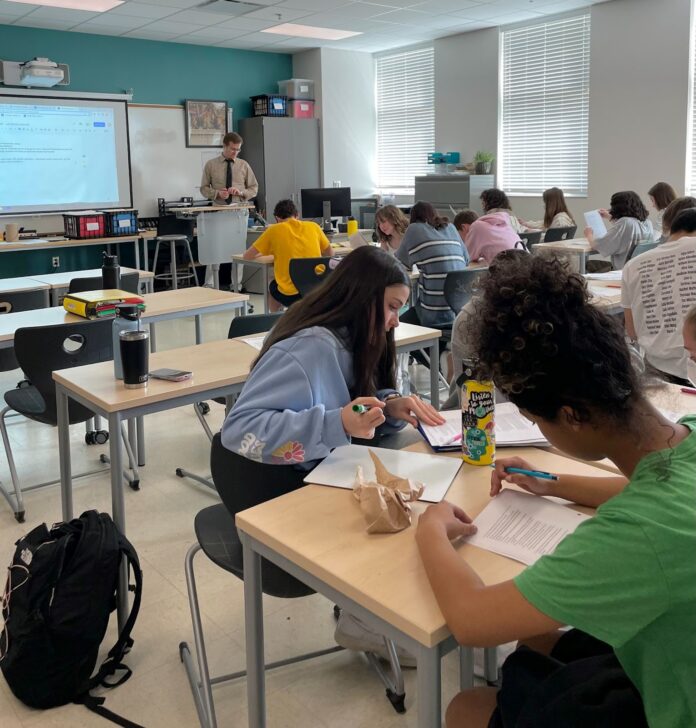
For as long as students and teachers can remember, Advanced Placement (AP) exams have been administered on paper; however, in 2020, due to the pandemic, the exams had to be conducted online. Last year, districts went back to paper testing, but schools across the country discussed whether or not the change to digital AP exams should be permanent.
The College Board decided to give schools the option of online testing this year, and the school announced on January 30 that it would be piloting two digital exams: AP Language and Composition and AP Computer Science Principles.
In the 2023-2024 school year, all AP exams will be administered digitally.
This is a drastic change for many students, as some have become accustomed to taking AP exams on paper.
“I’m a bit scared about all AP’s going online next year because we don’t get to mark up our packets, but in the end it will probably save paper,” junior Nora Decker, an AP Language & Composition student, said.
The online administration of the AP Computer Science Principles exam may be less noticeable to students.
“I would think students’ performance on digital exams will be comparable to their current performance in courses that already have digital assessments. I don’t see the format change having a significant impact,” Garrison Reid, the AP Computer Science Principles teacher, said.
The pandemic forced many teachers to make their assignments and assessments digital, so some students don’t seem to be fazed by the shift of the platform.
“As a student who took both digital and paper forms of the AP exam, I inevitably have to agree to the fact that typing responses for FRQs is more efficient and allows for a larger margin of error,” senior Carolyn Shi said.
AP Language & Composition teacher William Schrader advised students who are unsure about the new formatting to become familiar with the interface.
“[Students should] just kind of practice within that online format and make sure they’re familiar with the tools that the College Board will give students to annotate and take notes as they work through the different problems,” he said.
The College Board announced that the entire process will be automated, with timers built into the exam program. While the exam itself will emulate the paper tests, there are certain features that only the digital exam will have: a bookmarking feature, a digital timer that can be hidden, online annotation tools, a cross-out feature and a zoom in/out feature.
While a number of students said they preferred to type rather than handwrite essays, some still have apprehensions about reading texts digitally rather than on paper.
“I’m really happy about writing the essays online, but I don’t like annotating texts and question sets online; I find it much easier to do those on paper,” Decker said.
Other students are unsure how the digital formatting will impact their exam experience; some believe that certain exams may be easier to take online than others.
“As for making all AP exams digital next year, I have reservations about that,” Shi said. “Although digitally taking writing-heavy exams such as AP Lang and AP Lit would be a relief to those who type faster than writing, not all subjects follow the format of composing responses for prompts.”
Reid also pointed out that digital exams may make the grading process simpler.
“Writing essays on paper (in the handwriting of a high schooler), boxing and shipping essays across the US, and asking AP readers to decipher it all seems like a lot of resources and issues that an open-response form field can resolve easily,” he said.











